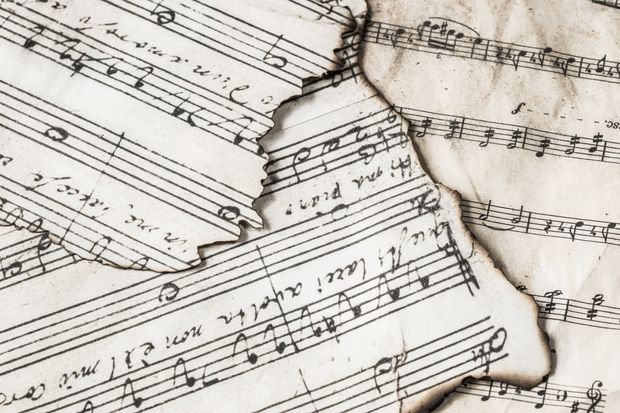Did you know that music has been found in every known human culture? It’s true! Music is a constant part of human life, and appreciation for it seems to be built into our nature.
Even if you’ve never formally studied music, learning about its history, structure, and development over time is a great way to boost your appreciation for it beyond an average level. In this article, we share a quick crash course in classical music history.
And if you’d like a deeper dive be sure to check out Brainscape's music flashcards. Learning music history facts will help you appreciate music, enable you to impress friends with your music knowledge, and give you perspective on changes in music throughout history.
Western music history crash course
This is a crash course, so we’re going to skim over a lot of music history facts here, including prehistoric music. As we already mentioned, music has been found to be present in all known cultures. To avoid writing what could amount to an entire book, we’ll focus here on classical European music history.
Music in the Middle Ages
To get started, we need to jump back a few thousand years to the Middle Ages, when many of the foundations of modern music were laid down. During this period in Europe, religious music flourished. Instruments like the organ were developed, and the folk tradition of traveling minstrels (who often played harps) provided the framework for today’s itinerant musicians.
Music in the Renaissance
By the time the Renaissance rolled around at the turn of the 15th century, classical music as we know it was beginning to take shape. The advent of the printing press revolutionized music by facilitating the written transmission of music.
During this period, highly diverse musical styles flourished across the continent. In England, religious music prospered, while in Spain, the recently-created guitar began to spread across the country and grow in popularity. In Germany, religious music created by choirs became popular. At the end of the era, a new music form began to emerge in Italy: the opera.
Baroque Music
The court was ascendant in Europe at this time, with kings and queens steering their nations and pouring funding into the arts. These political circumstances created the basis for large, organized musical performances.
During this period, which stretched from around the year 1600 to 1750, classical music as we know it was born. Many of the most famous classical composers, such as Johann Sebastian Bach, Antonio Vivaldi, Johann Pachelbel, George Frideric Handel, and others, worked during this era.
The Baroque era was characterized by highly complex, ornamental architecture, and music followed the same trend. Music composition become more elaborate during this period, and classical music truly came into form. Also during this time, musical notation became increasingly standardized.
Music in the Viennese Classic Era
From the end of the Baroque period to about 1820, the European musical scene continued to flourish—especially in Vienna, Austria. Some of the most famous composers of all time, such as Wolfgang Amadeus Mozart and Ludwig van Beethoven, worked and created their masterpieces there.
Music during this time grew somewhat simpler, in keeping with the artistic trends of the era. Orchestras grew larger, but also smaller groups such as the string quartet and the trio grew in importance. The piano came into widespread use during this period, and the musical form that we know as the symphony, which has since spawned some of the most stirring music ever heard, was created (mostly by Joseph Haydn).
Onward to the present
Music never stops evolving, and the period since the Classic era has proved that. Music has continued to change and develop, but the influence of this pivotal era in European music history is felt to this day.
If you’d like to brush up on your music history and theory knowledge, one great tool is the Brainscape Knowledge Rehab flashcards, which will quiz you on the subject in a fun way that is scientifically optimized to help you learn faster and remember things for longer. Study them for FREE!
Best of luck in your music appreciation journey.
